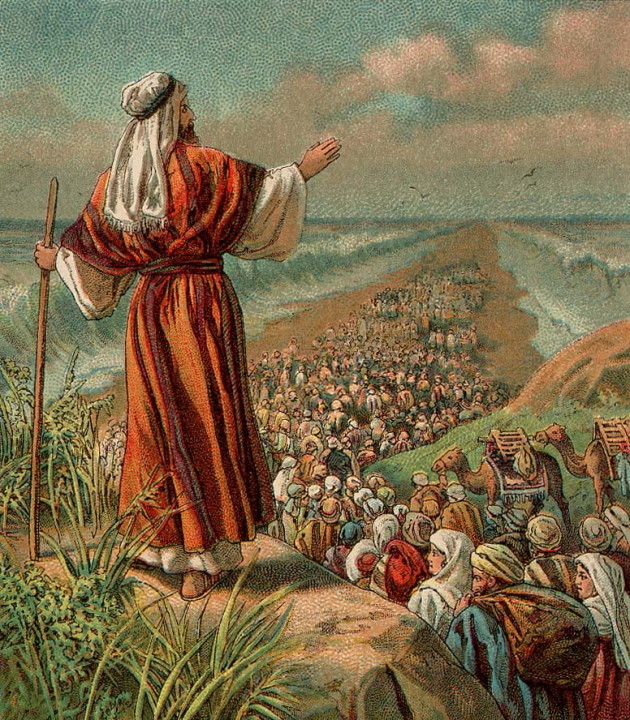
by Amelia Dornbush
We Should Have Never Left Egypt: A Counter-Narrative to Chew On While You Finish the Matzah
 As Passover comes to an end, and we anticipate the return of the hametz, I think it’s worth taking a moment to pause and reflect on what exactly happened during the story of Exodus.
As Passover comes to an end, and we anticipate the return of the hametz, I think it’s worth taking a moment to pause and reflect on what exactly happened during the story of Exodus.
Some might have you believe that this is a story of liberation, with a hero named Moses, who brought his people out of slavery and into promised land.
They are agents of the patriarchy and not to be trusted.
Consider. There is no doubt that things were bad in Egypt. But what was the plan? Was it to organize the Israelites to realize their collective power labor and #ShutShitDown? No. It was to have a closed-door negotiation between one male palace insider and another.
And what was our undemocratically selected, male savior figure even negotiating for? Pretty weak demands, I’d say. “Let my people go?” Please. How about “let my people stay, be given reparations, redistribute wealth from the classes to the masses, and create social and workplace democracy so that our shared society can grow?”
To give credit where credit is due, Moses did have an escalation strategy. That having been said, it was a bit violently nationalist for my taste. The Egyptian proletariat could have been natural allies! Killing the firstborn of everyone who doesn’t put blood on their doors definitely slams the door on that possibility. And on top of that, I’m not sure that having your powerful backer “harden the heart” of the opposition to prevent them from giving in to your demands is that great a plan. If you get what you want early, great! Take it, and demand more!
But whatever, Moses didn’t ask me (or those who his actions would most impact, which is rather the point) and went cockily ahead straight into a desert, without even thinking through questions as basic as how do we get to where we are going next and what will we eat. Surprise, surprise a plan constructed by one palace insider and his powerful backer didn’t work out so well for everyone else.
Plus, after many years of wandering in a desert, when the people finally revolted, they were literally swallowed in a hole. Talk about the power of the deep state. And even after arriving in the promised land, everything was—objectively—pretty awful. The Book of Judges is not a pretty picture. All in all, not the kind of liberation I am looking for.
But, you might ask, what was the alternative.
Grassroots, rank-and-file women-led movements of resistance! The Midwives of the Hebrews were doing the hard work of birthing the movement, engaging in acts of refusal and civil disobedience when the book of Exodus opens. And it was working, their movement was multiplying and increasing greatly, we learn. This was likely just the beginning of their plan to win. Shifrah and Puah should be the heroes we salute in Nissan.
Imagine if instead of getting up and leaving their homes, they had continued the tactics that were already working to disobey Pharaoh’s orders. Instead of having deprived ourselves of bread for the past eight days we could be feasting on the delicious leavened delicacies our forebears would have made to celebrate as their tactics brought about collective liberation to all of Mitzrayim.
So next time you find yourself complaining about matzah, make sure to assign blame squarely where it belongs: at the doorstep of the patriarchy.
Many thanks to Rachel Sandalow-Ash for contributing many ideas to this piece.
The views and opinions expressed in this article are the author’s own and do not necessarily reflect those of Lilith Magazine.